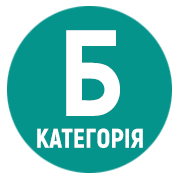The use of the task-based approach to develop a mathematical language portfolio in foreign students at the pre-enrollment stage.
Abstract
This article analyzes how a task-based approach affects the understanding and mastery of mathematics and the formation of a mathematical language portfolio in foreign students at the pre-university stage of study. It was found that this approach to the formation of a mathematical language portfolio in foreign students at the pre-university stage of education provides not only the development of certain types of mathematical thinking, increased motivation to study this discipline, the formation of student independence and responsibility for the results of his/her activity for increasing the share of their autonomy in the educational activities of a creative or a research nature, but also develops both the terminological vocabulary of students and overall communicative skills. It analyzes how a mathematics course for foreign students at the pre-university stage of education can look like when using the task-based approach. The author’s vision of an article of such a course is based on the psychological characteristics and the behavior of foreign students during the adaptation period. Additionally, such a course can be supplemented by the use of project technology, technology for the development of critical thinking, technology of interactive learning, heuristic learning, ICT technology. The analysis of general theoretical and applied aspects of the use of the task-based approach to forma mathematical language portfolio in foreign students at the pre-university stage of study allowed us to make several generalizations: a) this approach is aimed at solving a two-pronged problem, namely: overcoming the phonetic difficulties encountered by foreign students in the study of mathematics and the development of mathematical terminology; b) it will allow you to move away from the practice of focusing on unsuccessful attempts, and shift the focus to the side of the result; c) it will change the role of the teacher from the head of the process to the facilitator or mentor; g) it will stimulate students' interest in the study of mathematics. It could bea prospect to further study the mathematical background of foreign students in order to identify gaps and develop programs for differentiated teaching of mathematics, taking into account those inconsistencies.
References
2. Булгакова Н. Б. Система пропедевтичної підготовки іноземних громадян з природничих дисциплін у технічному університеті : дис. … д-ра пед. наук : 13.00.04 / Наталія Борисівна Булгакова. – К., 2002. – 446 с.
3. Віхрова О. В. Методичні особливості навчання математики іншомовних студентів на підготовчих факультетах вітчизняних вузів / О. В. Віхрова, Н. О. Зінонос // Актуальні питання природничо-математичної освіти : зб. наук. праць. – Суми : ВВП «Мрія», 2013. – С. 5–8.
4. Про деякі особливості викладання математичних дисциплін іноземним студентам за кредитно-модульною системою / О. В. Карупу, Т. А. Олешко, В. В. Пахненко // Вісник Черкаського університету. Серія : педагогічні науки. – 2013. – Вип. 8 (261). – С. 52–57.
5. Резван О. О. Педагогічні умови розвитку пізнавальних потреб у іноземних студентів у процесі навчання : автореф. дис. … канд. пед. наук : 13.00.04 / О. О. Резван. – 2008. – 17 с.
6. Nunan D. Designing Tasks for the Communicative Classroom / David Nunan. – Cambridge: Cambridge University Press, 2004. – 224 p.

This work is licensed under a Creative Commons Attribution 4.0 International License.

 ISSN
ISSN  ISSN
ISSN 



